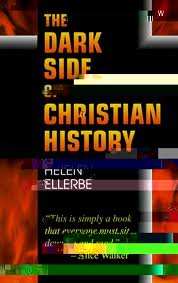![]()
"The Church formulated its position regarding reincarnation in response to the controversy surrounding Origen"

"The Church formulated its position regarding reincarnation in response to the controversy surrounding Origen. Origen, a Christian scholar, thought that the human soul exists before it is incarnated into a physical body and then passes from one body to another until it is reunited with God, after which it no longer takes on a physical form. He believed that all souls eventually return to God. He thought that while Christ could greatly speed the reconciliation with God, such reconciliation would not take place without effort by the individual. Since humankind had fallen from God by its own free will, he argued, so humankind must also reunite with God through its own volition. The orthodox opposed Origen's theories, insisting that they depended too heavily upon individual self-determination.”
“The Church formulated its position regarding reincarnation in response to the controversy surrounding Origen. Origen, a Christian scholar, thought that the human soul exists before it is incarnated into a physical body and then passes from one body to another until it is reunited with God, after which it no longer takes on a physical form. He believed that all souls eventually return to God. He thought that while Christ could greatly speed the reconciliation with God, such reconciliation would not take place without effort by the individual. Since humankind had fallen from God by its own free will, he argued, so humankind must also reunite with God through its own volition. The orthodox opposed Origen's theories, insisting that they depended too heavily upon individual self-determination.
Orthodox Christians also thought the theory of reincarnation minimized the role of Jesus Christ, downplayed the necessity for salvation in this lifetime, and diminished the unique nature of Christ's resurrection. A person's salvation, in orthodox eyes, depends not upon self-determination and free will, as Origen's theories suggest, but only upon embracing Jesus Christ. Furthermore, if a person could choose to reunite with God in any one of many lifetimes, then there would be little fear of eternal damnation-and fear was deemed essential by the orthodox. Origen's idea that the soul is separable from the body also seemed to diminish the extraordinary nature of Christ's resurrection. The miracle of Christ's resurrection was understood to offer the possibility of overcoming physical death. If, however, each soul periodically overcomes death by separating from one body and entering into another, then Jesus's feat would not have been unique.
Origen's work also challenged the Church's control of intellectual and spiritual pursuit. Although he meticulously cited scripture to support his beliefs, Origen found that the scriptures provided limited direction in certain areas. Having received the education of a learned Greek, Origen continued to seek answers both in Platonic philosophy and in his own imagination when scripture was unavailing. Augustine, too, had pondered questions to which scripture provided little guidance.
Augustine asked, for example:
...and what before that life again, O God my joy, was I anywhere or in any body ? For this I have none to tell me, neither father nor mother, nor experiences of others, nor mine own memory.
Whereas Origen continued to contemplate and explore such questions, Augustine retreated from inquiry outside the scripture. He wrote:
Either I would like to know those things of which I am ignorant as to the origin of the soul, or else I should like to know if it is not for us to learn such things as long as we live here in this world. And yet, what if this is one of those things of which we are told: 'Seek not the things that are too high for thee, and search not into the things that are above thy ability: but the things that God hath commanded thee, think of them always and in many of his works be not curious.' (Ecclesiastes 3:22)
Augustine went so far as to entertain the idea that before creating the world, God had busied Himself preparing a place of punishment for those with the audacity to question what had preceded creation.21
Although Origen died in 284, debate over his theories continued until 553 when he was officially anathematized, or cursed, by the Second Council of Constantinople. In condemning Origen, the Church indirectly dealt with the issue of reincarnation. Christians were not to believe in the pre-existence of souls, the existence of discarnate consciousness, or that a person has any more than this one lifetime to turn to the Christian God without being subject to eternal damnation. Furthermore, the anathemas against Origen served as another reminder that, regardless of the sincerity of one's faith, one should always remain within the ideological confines of scripture. "
Ellerbe, Helen (2013-04-08). The Dark Side of Christian History
(Kindle Locations 593-615). BookBaby. Kindle Edition.
Disclaimer: Our material may be copied, printed and distributed by referring to this site. This site also contains copyrighted material the use of which has not always been specifically authorized by the copyright owner. We are making such material available to our readers under the education and research provisions of "fair use" in an effort to advance freedom of inquiry for a better understanding of religious, spiritual and inter-faith issues. The material on this site is distributed without profit. If you wish to use copyrighted material for purposes other than “fair use” you must request permission from the copyright owner.